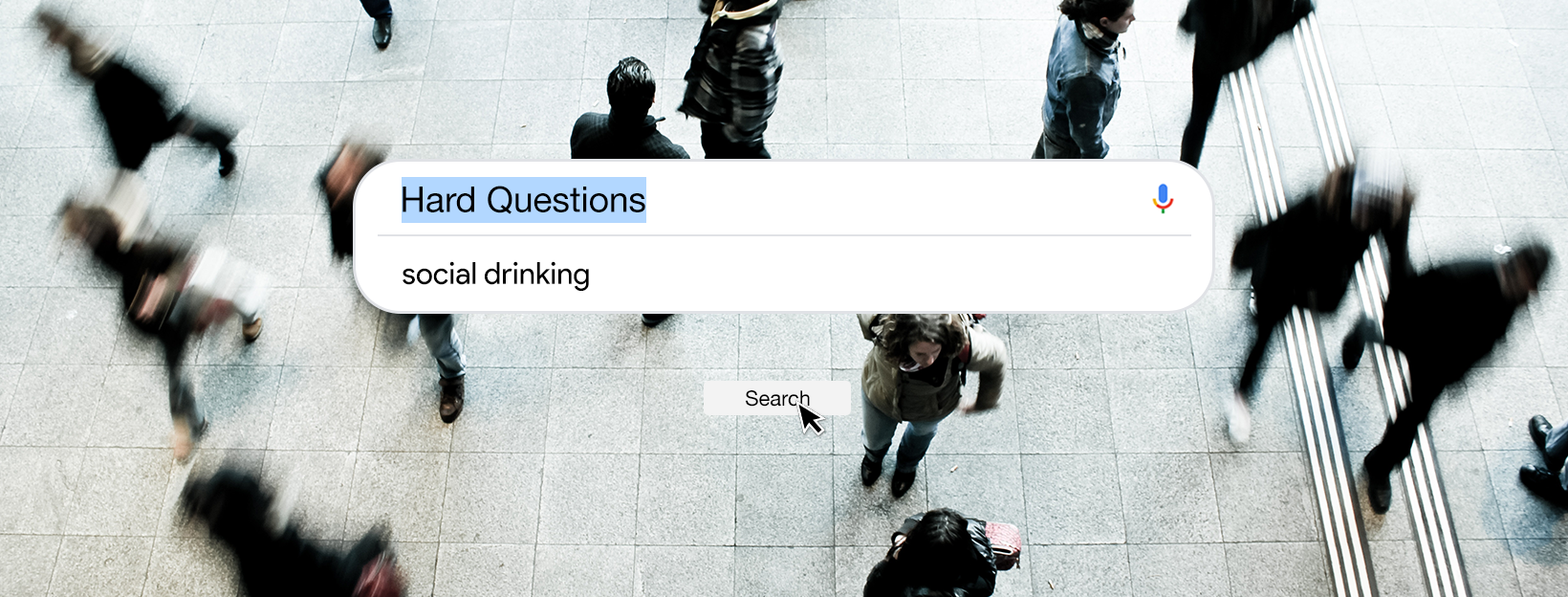Hard Questions: Social Drinking

Hard Questions: Social Drinking
by Stephanie Miller
I will never forget the words Aaron Bounds spoke to an arena of young people at the 2015 North American Youth Congress. He cautioned us about the environments we put ourselves in and the things we align ourselves with. In reference to environments where social drinking occurs, he said, “You wouldn’t go to a bar to get milk!” That phrase has stuck with me since then and it prompted some questions: Why, for the sake of socializing and fitting in, do we often put ourselves in compromising situations and environments that have the potential to birth disaster in our lives? What is our motivation and where as Christians should we draw the line? After all, we answer to God.
As young people living in a world where almost anything—whether good or bad—is accessible, it is important to draw a line in the sand before we are ever faced with opportunities to cross them. My mother always told me growing up, make your decisions and take your stand before you are in a situation, so your response is automatic. If you’re in the situation wondering what to do, it may be too late.
In August 2014, I moved to Boston after accepting a spot in a full-time graduate program. I knew one person in Massachusetts at the time and had found a church through the UPCI website before deciding to enroll in graduate school. But truth be told, most of my time was spent with classmates and professors, not people from church. This is true for most of us. If you’ve spent more than a day on a college campus, you’ll know that drinking is commonplace. I had already been through four years of college, but I lived at home and was fairly separated from the world of social drinking. Being thrown into this new environment without anyone or anything familiar was a challenge for me. I quickly saw that I was going to need to draw a line in the sand about who I was and what I would and would not do.
Drawing your lines in the sand can seem difficult, especially if you are the kind of person who does not like to rock the boat or if you are the “new kid” and seeking acceptance from your peers. Yet as a Christian, you are called to stand out and be a light in a dark world. You cannot shine if you’re hiding. To take it a step further, when people need help, they are not going to look for people who are doing the same things they are doing. They are going to look for a leader, for someone who is doing something different. Oftentimes people use alcohol to mask what is happening beneath the surface; yet underneath they are hurting, stressed, confused, and lacking direction and purpose for life.
As humans, we all face these struggles, Christians or not. I recognized that for many people, drinking was a way to numb the pain of those struggles. But Hyphens, we who know Jesus do not have to search for substitutes for what the power of the Holy Ghost does in our lives. We already have the answer.
When I drew my line in graduate school, people were curious. “Why won’t you come to bars with us after class?” “Why don’t you drink when we go out to eat?” “Is your choice to not drink a religious thing?” My personal favorite was, “Do you go to one of those hallelujah churches?” The more I was asked those questions, the more excited I became to answer them because it meant that people noticed a difference in me. My stand became a way for me to witness and speak about my faith. I explained that while alcohol is a substance like many other things and is not inherently evil, it is a gateway to things that are destructive and sinful. Why would I, not believing in drunkenness or in things that God calls sin, participate in something that leads to those behaviors? And why would I put myself in environments I cannot participate in? I found that people not only understood but respected my choices and the stand I took to honor godly principles in my life.
It reminded me that we are all human and face the same struggles, and we’re all looking for a way to live above them. Living for God is what makes the difference and helps us to live in a way that brings life despite those struggles. We can bring our concerns to God who already knows and loves us, and who gives us peace, joy, and strength to become better as a result of the struggle. Aware of this difference, my decision to not drink did not and does not make me look down on those around me who do drink. I think people recognized that I could take a stand for what I believed was right, and still operate in love for those who would choose a different path than mine. Jesus did that everywhere He went. Rather than forcing my beliefs on others, I endeavored to allow my life to speak for me. I also spoke up and took the time to explain to anyone who asked me why I did what I did. I believe that people were open to hearing what I had to say because I had drawn my line. I did my best to make sure that my talk matched my walk. It comes down to a few things: identity, obedience, and wisdom.
Identity says, “I know who I am, therefore I will act in ways that are consistent with my character and demonstrate integrity.” Individually, we are the temples of the Holy Spirit. We are charged with keeping ourselves clean and not getting caught up in lifestyles that are contrary to the Word of God. We are also called to be like Jesus, who was completely captivated and yielded to purpose while walking this earth in the flesh.
Numbers 6:3 (ESV) tells us about the Nazarite vow, which was a vow taken by those who wanted to consecrate themselves and be set apart for the work of God: “He shall separate himself from wine and strong drink. He shall drink no vinegar made from wine or strong drink and shall not drink any juice of grapes or eat grapes, fresh or dried.” It was not because wine or strong drink was inherently evil, but because there is potential for those things to lead to sin and lifestyles contrary to pleasing God. It is hard to stay consecrated if you dwell in desecrated places.
Obedience says, “If God said it, then I will do it.” Even when we do not understand, we know and trust that He knows best. The Bible also calls for believers to flee the appearance of sin and things that are not pleasing to God. Ephesians 5:18 (NIV) tells us not to “get drunk on wine, which leads to debauchery” (or, in layman’s terms, sin) and to “instead, be filled with the Spirit.” Galatians 5:19–21 names “drunkenness” along with other things like “idolatry and witchcraft” as “acts of the flesh” and tells us that those who do these things “will not inherit the kingdom of God.” Think about that: drunkenness is juxtaposed with witchcraft, yet we think less of going to a bar and getting a drink than casting spells. This is clearly something that God takes seriously. Being obedient positions us to receive God’s best for us. It also spares us from the consequences of not just sin, but the effects of being around sin, as none of us are impervious to our environments.
Wisdom is the cry of I Corinthians 6:12 (NIV), which says, “‘Everything is permissible for me’—but not everything is beneficial.” Four chapters later, Paul quoted believers at Corinth, saying, “You say, ‘I am allowed to do anything’—but not everything is good for you. You say, ‘I am allowed to do anything’—but not everything is beneficial” (I Corinthians 10:23–24, NLT). While not all things are bad, not all things are wise. Ignoring wisdom is like playing with fire. Most people view the sin itself as the heart issue, but the real issue is opening the door to sin to begin with. Sin is an opportunist and a bad guest: it will accept every single invitation you extend, and it will leave a mess behind.
We cannot be the light we are called to be in this world by participating in the same things the world does. Finding common ground with those who aren’t living for God should never be done on the world’s terms. We must learn the difference between permissible and beneficial if we want to live consecrated lives. Part of living a life that is pleasing to God is measured not just by what we do, but by what we willingly choose not to do to honor God as supreme in our lives.



